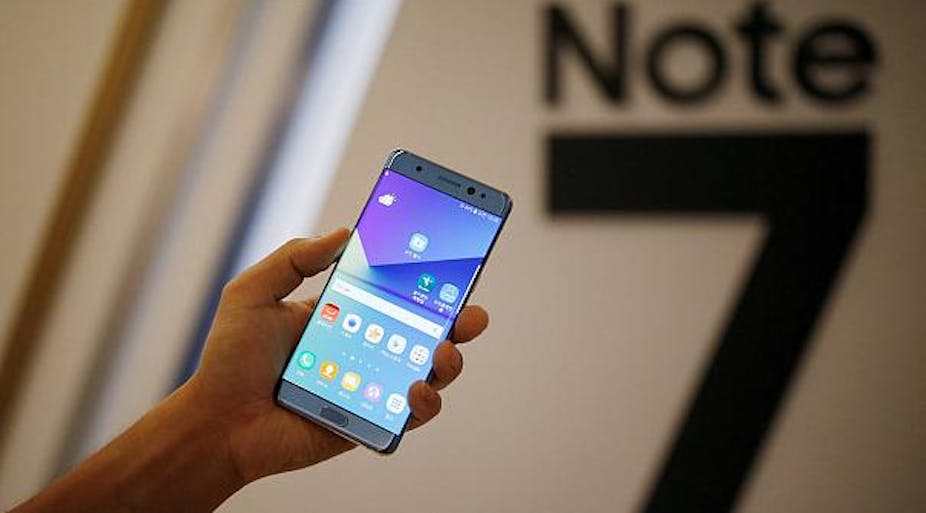Samsung has finally called a halt to its production of the Galaxy Note 7. Following on from its earlier problems with the devices spontaneously setting alight, it seems that the replacement also suffered from the same problem. Samsung has clearly not found out the exact cause of the original cause for the batteries to overheat, even though there was some suggestion that the replacement phones may have been affected by a different issue from their predecessors.
In Korea, I talked to a number of people who didn’t particularly express concern about Samsung’s woes with the Galaxy Note 7. They simply thought it was a problem related to a specific device and so the consequences would be felt by those in the company judged to be responsible for the flaw in the design or the manufacturing.
Whilst it is a massive setback for the company, relatively speaking, they hadn’t shipped that many devices to that many countries before the problems surfaced. Ultimately, Samsung had little choice but to stop making the phone because regulators in countries like the US would have prevented them from continuing to sell them in any event.
Whilst it may seem that Samsung has prevaricated about responding to reports of devices exploding, it made an unprecedented decision to replace all of the phones that it had already shipped and an even bigger decision to stop production overall.
At the time of the recall, Samsung had shipped 2.5 million affected phones with 45,000 Note 7s on preorder in Europe.
Samsung contributes a massive 17% of South Korea’s GDP and so business decisions of this magnitude has a potentially large impact on the country. Because of this, Samsung’s decisions are potentially influenced as much by the South Korean Government as the management of the company. Within the company, there is also a strong culture of a rigid hierarchy which Samsung has recently sought to change. This inflexibility in work practices is held responsible for its inability to move quickly in response to the market and the pressures of extremely tight product cycles.
It is possible that even if the problem of the Galaxy Note 7 battery had been picked up prior to shipping, it may not have been escalated within the company.
The question is whether the failure of the Galaxy Note 7 will cause lasting damage to the Samsung brand. In South Korea, the answer is clearly no. People in Seoul that I talked to were clearly unfazed by the incident and simply believed that it was something that wouldn’t happen again with other future devices. In the US and other markets like Australia, those directly effected may be less likely to buy another Samsung device, but it is not clear whether the issues of a very specific model will transfer to tainting the reputation of Samsung’s products generally.
Much of the future outcome for Samsung will depend on what happens next and whether they can successfully bring out a new phone that has no issues.
Apple’s shares received a boost on the news of Samsung halting production of their phone, with its share price jumping nearly 2%. It isn’t certain however that Apple would benefit from users being concerned about the Galaxy Note 7. It is far more likely that in the short term, users would simply choose another Samsung phone like the Galaxy 7 which is unaffected by battery problems. Even if users were so dissatisfied with Samsung that they wanted to choose another brand, it is more likely that they would choose another android device, even opting to wait until the Google Pixel is available.
It may be fair to ask why Samsung didn’t pick up the problems with the battery during their testing of the devices. Of the 2.5 million devices shipped, there have been around 100 cases of batteries catching fire and so that is essentially 1 in every 25,000 devices shipped. It is not unreasonable that the type of quality testing that they carried out would simply not have picked this problem up with those sorts of odds.
Of course, if someone within the company had actually known about the potential issue and not come forward because of the corporate culture it would have been a different story. But we are unlikely to ever know.

